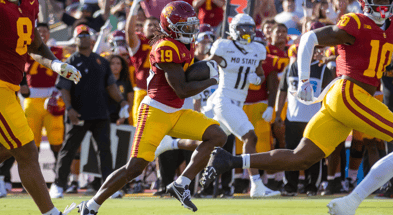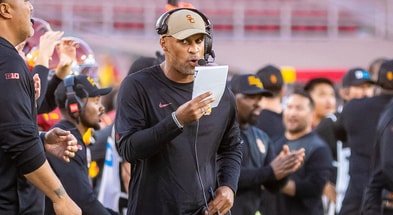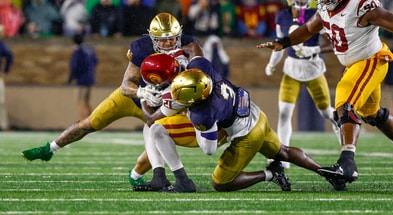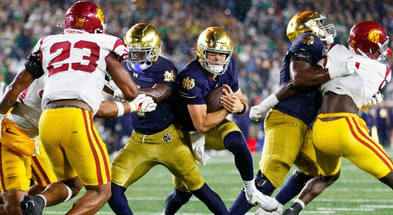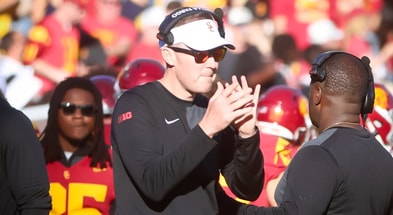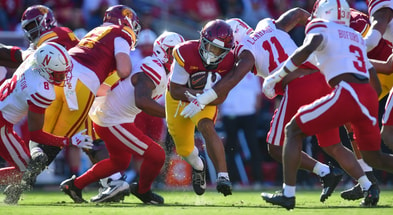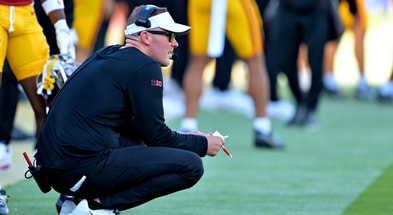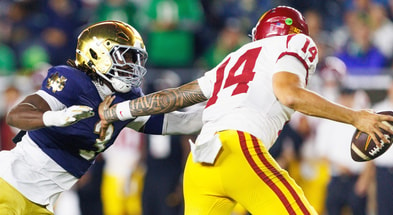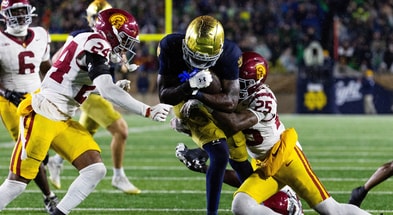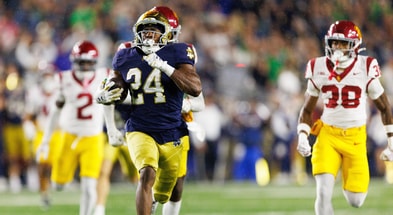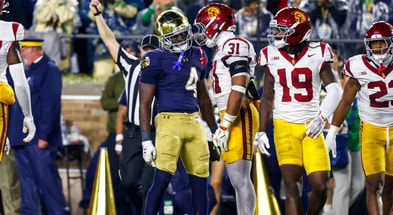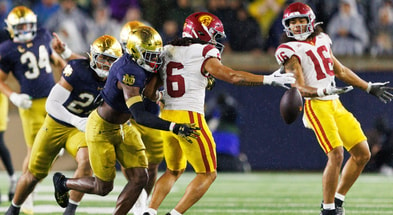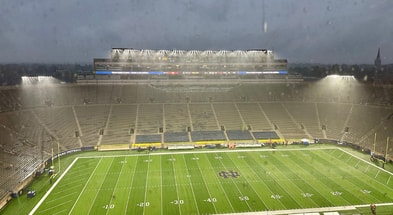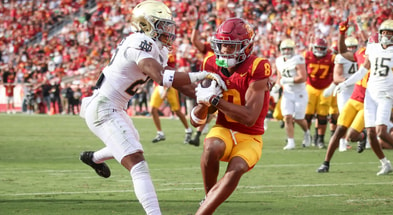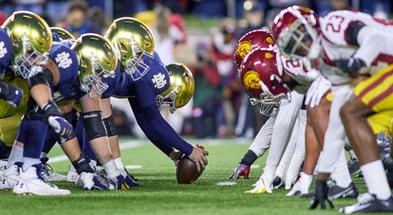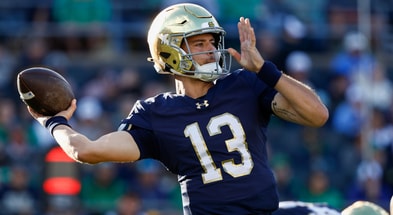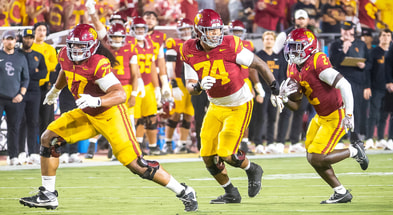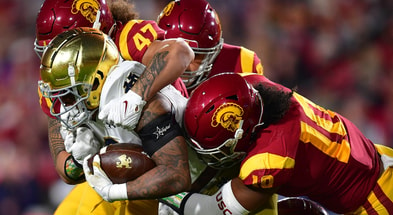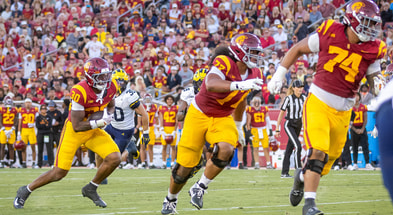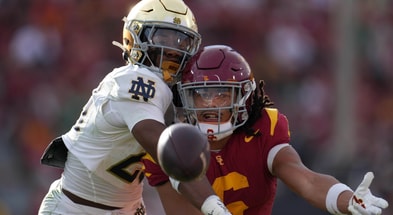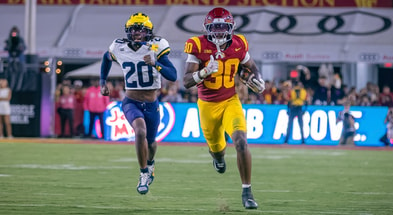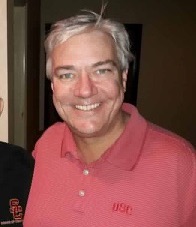Musings from Arledge: Questions facing Lincoln Riley
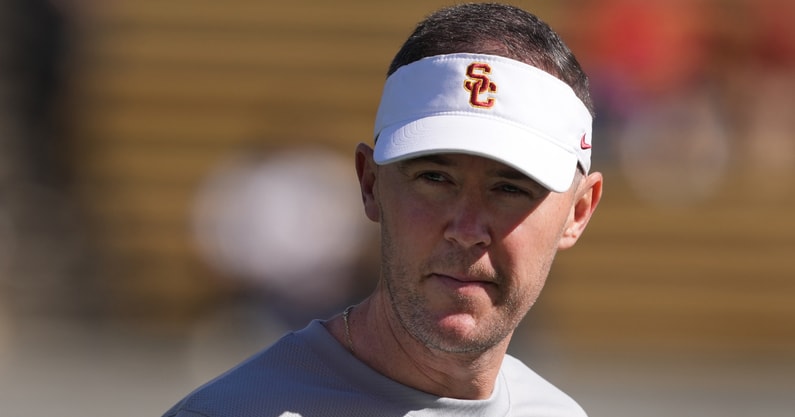
I may have started a minor message board kerfuffle with my comments about Lincoln Riley in the last Inside the Trojans Huddle. I stand by the comments, but it probably makes sense to offer appropriate context and disclaimers, which don’t always come out clearly when taping a show.
So, yes, I do think we have reason to be concerned that Lincoln Riley isn’t the head coach we hoped and expected he would be. Bringing Grinch from OU was inexcusable. His defenses were bad there, and unless Grinch’s scheme only morphed into nonsense on his plane ride from Norman to Los Angeles, it should have been obvious that the guy was hopeless as a college DC. Then Riley kept Grinch for a second year, which was inexcusable. Don’t tell me you can’t fire a coach after an 11-3 season. You can when he was inept and the team should have been 14-0. You can and you should. Riley messed up in spectacular fashion. He messed up when everybody with a pulse knew he was messing up. Those decisions probably cost USC two playoff berths.
I don’t care to dwell on these decisions any longer. I’ve said plenty about Mr. Grinch over the years.
But those decisions—decisions that I don’t think would have been made by Nick Saban, Pete Carroll, Urban Meyer, or any of the other elite coaches in recent memory—necessarily color how we see Riley’s decisions today. “Trust me,” means a lot coming from Nick Saban. It would mean nothing coming from Clay Helton. Lincoln Riley slides in somewhere between the two.
And there is reason to be skeptical of Riley’s recruiting strategies or execution at this point. USC’s recruiting classes from the high school ranks have been decent but not elite. Riley said he intended to build the best roster in the nation. He hasn’t come close to meeting that goal yet. It’s extremely difficult to win national titles putting together the high school classes that Lincoln Riley has crafted the last two years. The elite programs are elite for a reason, and it starts with recruiting.
So what, exactly, do I question? The emphasis on out-of-state recruiting. USC cannot build a dominant program recruiting only in Southern California. USC can probably build a great 7-on-7 team recruiting only in California. For some positions, USC will need to look nationally. But that doesn’t change that USC must build a fence around Southern California. You cannot allow Oregon to kick your rear in California. You can’t—not if you want to be an elite program.
Lincoln Riley shoots for the stars in recruiting. He’s going after the very best guys. As he should. But you can’t overlook quality players from your backyard. More specifically, you can’t treat local guys like they are your Plan B, because somebody else will have them as their Plan A. Shooting for a top-3 class and missing on most of the elite guys is a good way for a USC coach to finish around 15 in the recruiting rankings. And that matters. Look at the teams that are in the top five every year. It’s not an accident.
So, yes, you recruit a guy like Justus Terry. You recruit him. You fly him to So Cal. And if he wants to give it to you, you take his verbal commitment. Of course you do. And you do it knowing that it will be hard to hold onto him. Lincoln Riley did not mess up in losing Justus Terry. It would have been a Christmas miracle if he had landed him. The kid lives in the sticks in Georgia. Everybody he knows loves Georgia football. He loves Georgia football. And every day, his extended family, friends, teachers, and even the people he runs into at the supermarket are asking him why he would leave the best program in college football for a program that hasn’t played great defense since Pete Carroll left.
But this is why you cannot build the bulk of your recruiting class with out-of-state blue-chippers. Those guys are too hard to land. You must get the guys from closer to home and the guys with ties to Southern California. That has to be your bread and butter. That was Pete Carroll’s plan every year. Is that Riley’s plan? Maybe I’m missing something, but it doesn’t look like it.
And this is the part of our program where we always have to talk about NIL. Yes, NIL is critical. But it’s not everything. If it was, Alabama would not have been landing the classes it landed the last couple of years. They weren’t offering A&M, Texas, or Oregon money. But they could give players two things that players really want (in addition to money): elite coaching/development and the chance to play in the very biggest games.
And this is where Lincoln Riley’s tolerance of bad defense for many years and tolerance of an unbelievably bad defensive coordinator his first two years at USC is a problem. Because Lincoln Riley is selling a vision. He’s not showing recent success. He’s telling recruits to trust him. And some defensive recruits might be justified in wondering how much trust they should have.
USC, right now, can offer elite coaching. But recruits might ask themselves: for how long? Coach Henny’s going to stick around for three or four years? Coach Lynn will? Coach Entz will? Maybe. But maybe not, and with Riley’s track record of hiring on the defensive side of the ball, we can’t be sure he’ll hit a home run next time. We all want to believe he will—we’re USC fans. But none of us are being asked to stake our future career prospects on that bet.
Top 10
- 1New
Vitello parting shot
Vols legend fires at Kiffin
- 2
Arkansas Coaching Search
Latest intel & names to know
- 3Hot
Greg McElroy
Reveals 'insane' A&M at LSU take
- 4
Cam Newton
Gives controversial CFP take
- 5Trending
ESPN blackout looms
YouTubeTV standoff
Get the Daily On3 Newsletter in your inbox every morning
By clicking "Subscribe to Newsletter", I agree to On3's Privacy Notice, Terms, and use of my personal information described therein.
As for Isaiah Gibson and Terry, there are rumors they decommitted because they didn’t get some promised NIL payments. I’ve heard other USC commentators make this assertion and claim they have good, unnamed sources to back it up. I don’t believe it’s true. And my source is not unnamed. My source is Spencer Harris from House of Victory. Could Spencer be lying to me? I suppose anything is possible, but that strikes me as exceptionally unlikely for a whole variety of reasons: (1) in my dealings with Spencer he has always seemed a straight shooter; (2) the lie would be ridiculous, especially if information to the contrary comes out (and it could always come out from the recruit or his family if true); (3) there are all kinds of non-nefarious reasons why a Georgia fan from Georgia might choose to play in Georgia; and (4) if you’re having NIL shortfalls, Gibson and Terry are not the guys you shortchange. You might stiff somebody, but it ain’t them.
I’m not calling for Lincoln Riley’s firing. That would be absurd. And I’m not saying he won’t be successful. Nobody knows that yet. I am saying there are reasons for skepticism when there’s a gap between a coach’s public proclamations and real-world results. And right now, there is. Lincoln Riley really needs a good season this year for a whole lot of reasons. His credibility is one of the biggest.
One final thought on the topic from last week’s Musings. It seems silly to suggest that NIL rules are necessary because without them, there isn’t a level playing field in college football. There has never been a level playing field in college football. Do you think Vandy and Bama have a level playing field between them? USC and San Jose State? Ohio State and UCLA?
But in years past the differences were commitment and geography and the factor caused by those other two, tradition. And that made sense. Vandy has ample resources to compete in football if it wanted to. It doesn’t care to. The playing field is tilted towards the Tide in part because Vandy just doesn’t care as much.
Geography is a different story. It helps to be in Texas, Florida, or California. Or anywhere in the deep south. You have more access to homegrown talent, and players generally prefer to stay closer to home. This gives some schools an advantage. But, hey, isn’t this unfair? It’s not Oregon’s fault that it’s stuck in Eugene. Somewhere along the way some of the mentally slower members of the wagon train got separated from the rest of the group on the Oregon trail, they sat down and cried, planted some pot plants, and founded a university. Why should they be punished?
But these geographic benefits—while possibly unfair—were also good for college football. The players that went to USC or Georgia were usually guys who knew those universities and were often fans of those universities growing up. Their friends and family were also often fans. This is better for fan support and for tradition. Renting some dude from the east coast for a year who knows nothing about USC-UCLA is not great for college football. Recruiting a guy who has been watching that game his whole life and has long had a rooting interest in it? That is good.
When money becomes a major factor in college football, the players benefit financially. (They don’t benefit in other ways, which is the point of last week’s column.) But the mercenary nature of major college football does not benefit college football.
So it’s not so much that we must level the playing field. Leave that to the NFL, which loves to engineer .500 records from everybody. But it’s not good to take away the traditional factors that cause an unlevel playing field and replace them with one—money—that benefits nobody.
Except Oregon. And that’s worse than benefitting nobody.
